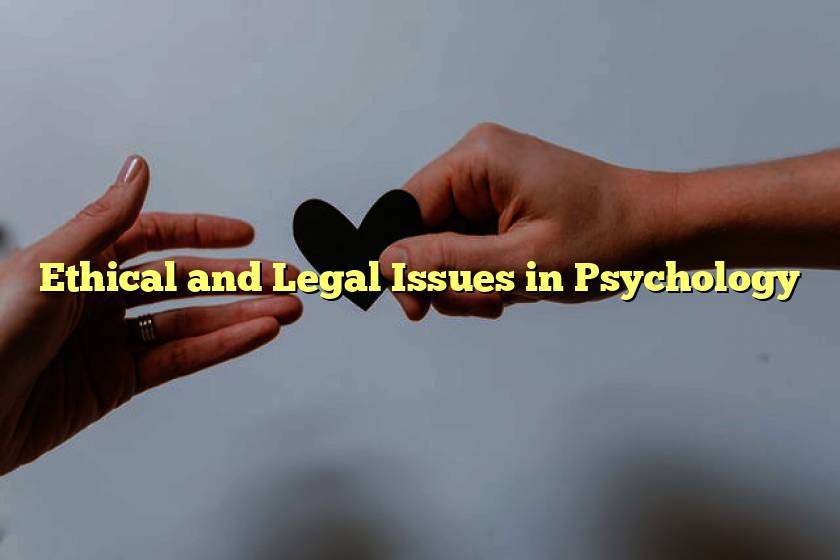Psychology is a field that involves studying human behavior and the underlying mental processes. However, with this privilege comes great responsibility. Psychologists need to be aware of the ethical and legal issues that may arise in the course of their work.
Ethical Standards
Ethical standards are fundamental principles that guide psychologists in their work. These guidelines help to ensure that psychologists act in the best interests of their clients and maintain the highest ethical standards. Examples of ethical standards include informed consent, confidentiality, and avoiding conflicts of interest.
Informed consent requires that psychologists inform their clients about the nature and purpose of their services, as well as any potential risks or benefits. Clients must also give their consent before any treatment or services are provided. This helps to protect clients from making uninformed decisions and ensures that they are aware of their rights.
Confidentiality is another crucial ethical standard in psychology. Psychologists are required to maintain strict confidentiality with their clients. This means that they cannot disclose any personal information about their clients without their consent, except in certain circumstances. For example, if a client is at risk of harming themselves or others, confidentiality may need to be breached to protect their safety.
Finally, avoiding conflicts of interest is another important ethical standard in psychology. Psychologists must ensure that their personal interests or relationships do not interfere with their professional duties. They should avoid any situation where their objectivity may be compromised.
Legal Issues
Psychologists must also be aware of the legal issues that may arise in their work. Laws and regulations may vary depending on the jurisdiction and the specific field of psychology. Some common legal issues in psychology include malpractice, licensing, and documentation.
Malpractice involves professional negligence or misconduct by a psychologist. This may include failing to provide services to an appropriate standard, or breaching ethical or legal standards. Psychologists may face legal action if malpractice has occurred, and clients may seek compensation for the harm caused.
Licensing is another important legal issue in psychology. Psychologists must be licensed to practice in their specific jurisdiction. This helps to ensure that they have the necessary qualifications and training to provide quality services to their clients. Failure to obtain the necessary license can lead to legal repercussions.
Finally, documentation is an essential legal issue in psychology. Psychologists must keep detailed records of their client interactions and services provided. This helps to provide continuity of care and ensures that clients receive the appropriate services. Accurate documentation may also be necessary in legal proceedings.
Conclusion
In conclusion, ethical and legal issues are an essential part of psychology. Psychologists must maintain the highest ethical standards, including informed consent, confidentiality, and avoiding conflicts of interest. They must also be aware of the legal issues involved in their work, such as malpractice, licensing, and documentation. These guidelines help to protect psychologists, their clients, and the integrity of the profession as a whole.



